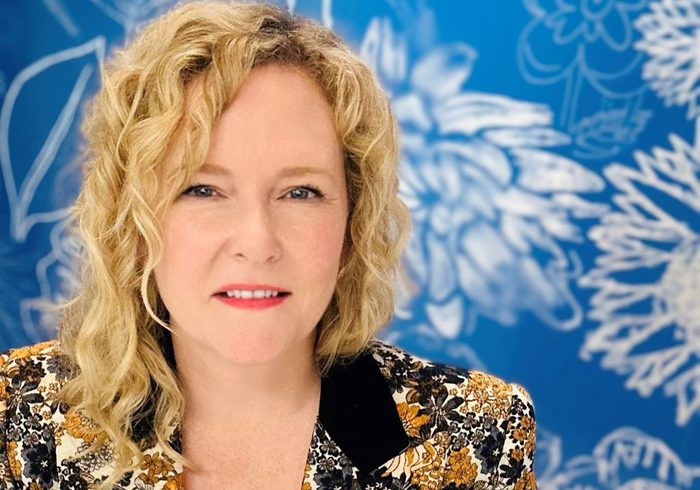
Psychiatrist Allison Crawford
For heading up a new suicide prevention line
As of November 30, Canadians can now call or text an easy-to-remember service called 9-8-8, designed to connect people who are thinking about suicide (or worried about someone they know) to trained responders. It’s free and available 24/7.
Allison Crawford, a Centre for Addiction and Mental Health psychiatrist and clinician scientist, is the chief medical officer behind the new program. She and her team saw the urgent need to address suicide prevention as a public health issue, and submitted the new proposal for 9-8-8 to the Public Health Agency of Canada. Taking a “public health approach” to suicide prevention, says Crawford, means providing a phone service that’s proactive and local. “It’s not enough to just wait until people end up in a clinic or a hospital. We need more community-based resources and supports, and we need more prevention,” she says. People who contact 9-8-8 will be directed to the specialized, trained responder closest to their home. Available in English and French, there are also specific options for people under age 18, or who identify as First Nations, Inuit or Métis.
The demand for mental health support is soaring right now, Crawford points out. The percentage of Canadians age 15 and older with a generalized anxiety disorder doubled from 2012 to 2022. (For women between 15 and 24, it tripled.) The 9-8-8 number is part of meeting that demand. “9-8-8 will increase conversation about suicide prevention and decrease stigma,” she says. —Bonnie Schiedel
(Related: 14 Virtual Care Services in Canada You Need to Know About)
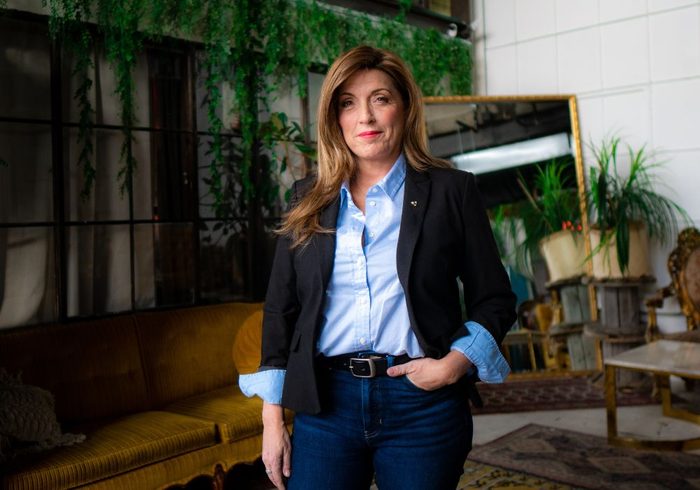
Food-rescue and hunger-relief leader Lori Nikkel
For redistributing surplus food to people who need it
We’re used to seeing food drives during the holidays, but in 2023, inflation and soaring grocery bills made headlines all year long. Lori Nikkel, the CEO of Second Harvest, a food rescue organization, says food charities are experiencing record visits and at least 6.9 million people in Canada are living in food-insecure situations. “That’s one in every five people in Canada,” she says, adding that produce and protein are particularly out of reach for many. The connection between what we eat, how we feel each day and our long-term health is clear. “When people don’t have access to adequate nutrition, they don’t have the necessary ingredients to thrive,” says Nikkel. She points out that food insecurity can lead to diabetes, hypertension, heart disease, chronic pain, depression, stress and anxiety. Second Harvest addresses the crisis by redistributing surplus food from restaurants and businesses to meal programs, shelters, addiction centres and senior centres.
In the process, more than 74 million pounds of healthy food were diverted from landfills by Second Harvest in the last year. “We’re laser focused on improving the health of people and the planet,” Nikkel says. She explains that food waste left to rot is a major contributor to global greenhouse gas emissions and climate change. (In 2020, she was awarded the Clean 50 award, for her contributions to “clean capitalism.”)
Nikkel began her career in the field of food insecurity and hunger relief after volunteering as a nutrition coordinator at her kids’ school. As a low-income single mom raising three sons, she had first-hand experience with food insecurity and wants to dispel any assumptions or stereotypes. “Many people have jobs, own cars and live in houses, but they are still struggling to put enough nutritious food on the table.” —Ariel Brewster
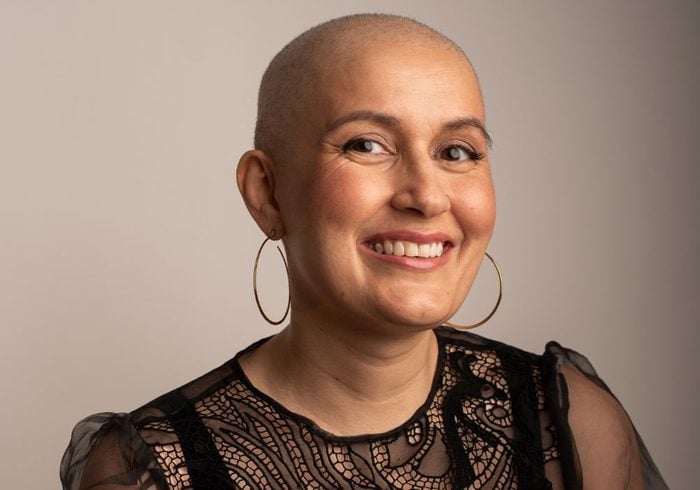
Gender equality advocate Farrah Khan
For her sexual health advocacy and sharing her cancer journey as a queer person
No matter the job, Farrah Khan does not back away from a fight. Over the past two decades, she has accumulated titles including award-winning human rights and gender equity advocate, frontline worker, trauma counsellor, educator and policy advisor. At Toronto Metropolitan University, she founded one of Canada’s first on-campus sexual violence support and education offices. She co-chaired Ontario’s first expert roundtable on violence against women. And at the And at the 2018 G7 Summit, Khan spoke to world leaders about the necessity of gender equality. Shortly after starting her dream role as the executive director of Action Canada, a sexual and reproductive health and rights advocacy organization, Khan learned she had a new challenge ahead. At the age of 44, she was diagnosed with breast cancer and neuroendocrine cervical cancer, which is rare and aggressive. LGBTQS+ patients like Khan are statistically more vulnerable to poorer health outcomes due to a lack of societal support and a health system that was not designed to provide inclusive care. A doctor once told Khan something patently untrue: Since she was no longer having sex with men, she didn’t need a Pap smear—the very test that, years later, would lead to her cancer diagnosis. In an op-ed for the Globe and Mail, she shared her story to raise awareness about sexual and reproductive health, “particularly for queer, racialized people like me,” who are disproportionately impacted.
As Khan weathers multiple rounds of radiation and chemotherapy, she and her family—she has a young son with Ontario MPP Kristyn Wong-Tam—have learned how to accept more help: Friends have signed up to accompany her to all her appointments. “There are many days when it’s been hard to get out of bed knowing what lies before me in treatments. Having a care team has made going much less daunting and less lonely,” says Khan. “Cancer has strengthened my belief in community care.” —Ishani Nath
(Related: This Is Why We Need to Talk More About Sex, and Our Intimate Body Parts, at Every Age)
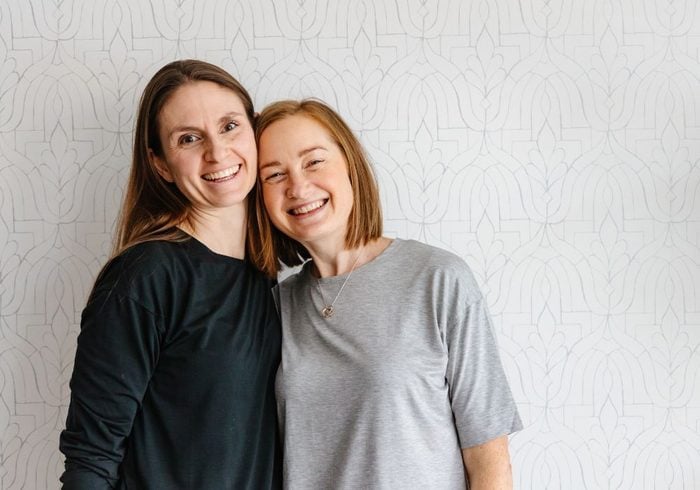
Former nurse Cara Rathwell and trained engineer Tegan Killi
For starting a sun-protective clothing company to reduce skin cancer rates
After Cara Rathwell’s basal cell carcinoma diagnosis in 2019, she and her friend Tegan Killi—they’ve been besties since grade nine—had a business idea. “My surgeon recommended I wear sun-protective clothing when I’m outside, because I’m super high risk,” says Rathwell, who is 42. However, most ultraviolet protection factor (UPF) clothes are pretty sporty—great if you’re on the golf course or at the beach, maybe not so appealing if you’re sitting on a patio with friends. “All I could find was athletic wear, or it looked like I was on safari,” she says. Seeing a gap in the market, Rathwell, who had worked as a surgical oncology nurse before having kids, and Killi, then an engineer, enrolled in a sustainable– clothing brand accelerator program. They founded their Calgary-based business, MorrisonRowe, in 2021, selling Canadian-made UPF50+ basics manufactured from natural fibres.
A full third of all new cases of cancer in Canada are skin cancers, and while overall cancer rates are declining, skin cancer rates are rising, in part thanks to cumulative damage from UV rays over the years. For many boomers and Gen Xers, sunburns were common and sunscreen use was occasional.
“People are like, ‘Oh, I know so-and-so who’s had skin cancer, this would be great for them,’” says Killi. “But we really need people to realize this isn’t only for cancer survivors. This is protecting you from getting skin cancer in the first place. We need to start earlier.” —Bonnie Schiedel
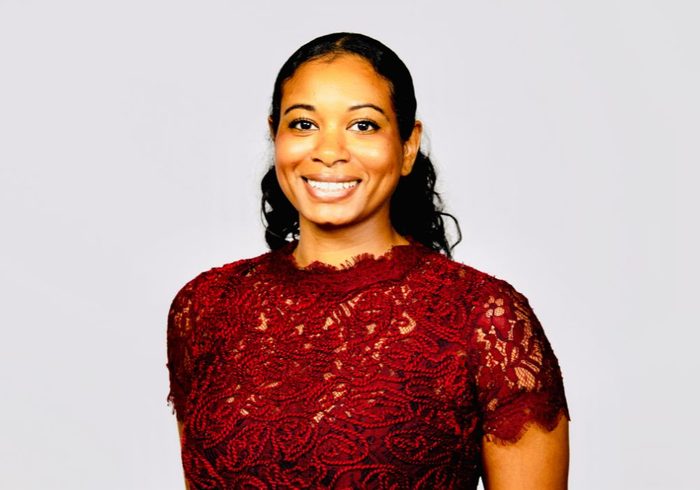
Public health doctor Hadal El-Hadi
For helping Black Canadian physicians connect and thrive
In May 2020, Hadal El-Hadi, a resident in the Public Health and Preventive Medicine program at the University of British Columbia, created Black Physicians of Canada (BPC), a nonprofit that unites and empowers Black physicians. As a first-generation immigrant from Sudan, El-Hadi is familiar with the challenges of being a Black physician. After the murder of George Floyd, she decided to partner with Teresa Semalulu, a rheumatology fellow at the University of Toronto, to create BPC. “It was a pivotal moment for me. I realized that our society can longer ignore anti-Black racism,” she says.
Sometimes the physicians who require the most support might be the sole Black doctor in their region or city. Recruitment and retention are significant obstacles, says El-Hadi, and that’s related to workplace microaggressions and volatility for marginalized practitioners. (For example, racialized and ethnic-minority med students are less likely to win academic awards or receive positive evaluation letters than their white peers.) A more diverse medical system is better for patients, too. Underrepresentation “affects morbidity and mortality of Black patients,” El-Hadi says.
There are better outcomes for Black patients when they are treated by Black doctors. This October, BPC hosted their first in-person conference, “I Am Because You Are: Celebrating Being Black in Medicine,” in Toronto. In 2024, BPC will offer a free mentorship program for residents, fellows and early-career physicians. “BPC gives hope to Black Canadians that things are changing for the better, despite how slow it may seem,” El-Hadi says. Ideally, this ripple effect will continue for generations to come. —Angela Serednicki
(Related: Incredible Black Women Who Are Changing Canadian Health Care)
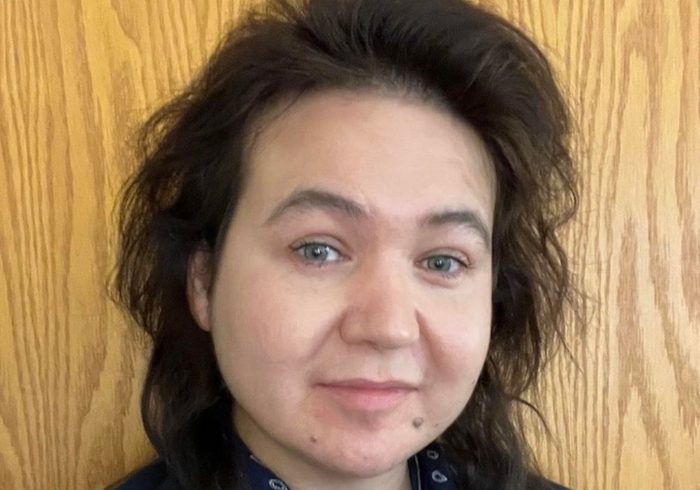
Canada’s first Indigenous dermatologist, Rachel Asiniwasis
For connecting indigenous communities to dermatology care
“The skin is a manifestation of internal and external health,” says Indigenous dermatologist Rachel Asiniwasis, who grew up in Regina and is of Plains Cree, Saulteaux and English heritage. Because medical dermatology is an underserviced industry across Canada— and especially in Indigenous communities—many people aren’t getting the treatments they need, she says. There’s one skin condition in particular that Asiniwasis keeps seeing in her research and in the patients who visit her Regina clinic: atopic dermatitis, also commonly known as eczema. Symptoms include itchy and painful inflammation of the skin that can cause redness, crustiness, seeping fluid and bleeding. If the condition is poorly controlled, says Asiniwasis, it can have a huge impact on quality of life, leading to anxiety, depression, insomnia, ADHD and risk of suicide.
Because there isn’t enough research on the genetic predisposition of Indigenous people, it’s still not known why eczema is so common in these communities. But Asiniwasis says environmental triggers, such as a lack of clean water, crowded housing and the challenges of accessing care, can cause flares and worsen symptoms.“People might have to fly or drive long distances, take time off of work, leave their families and pay for fuel, transportation and accommodations,” she says. This is why Asinawasis offers virtual services from her clinic and travels to remote communities in Saskatchewan to treat patients in person. —Renée Reardin
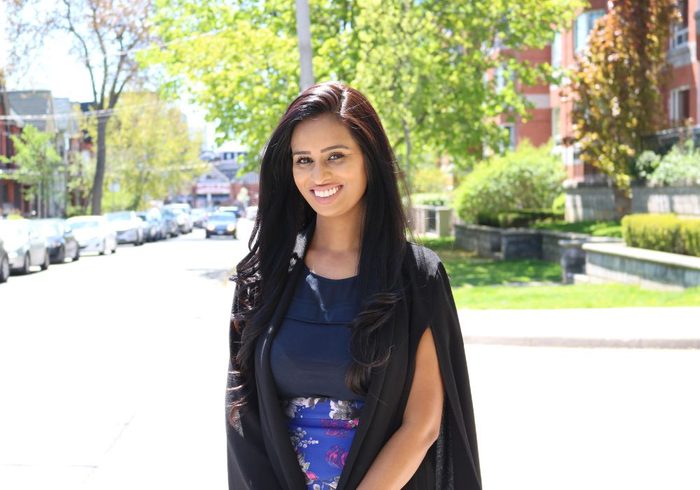
End-of-life care expert Nadine Persaud
For making palliative care accessible to all
Everyone will die, but not everyone is able to die with dignity. This can come down to the accessibility of hospice palliative care, says Nadine Persaud, executive director of Toronto’s Kensington Hospice, a not-for-profit that specializes in equitable end-of-life care. That can mean helping with last wishes, planning a celebration of life or supporting a family through the grieving process.
After the sudden loss of a friend in high school, Persaud pursued degrees in social work and a doctorate in palliative care. For her student placement, she worked at a hospice, where she saw the power and potential of this work up close. She was inspired to ensure that the social determinants of health, such as income level or background, don’t impact whether people can access palliative care. Caregivers need to ask questions like: Does this person have a support system? Financial resources and stable housing? What do they need?
On an average day at Kensington, says Persaud, 37 percent of the beds go to people who are structurally vulnerable, like refugees and the unhoused. She recalls one patient who lived most of his life on the streets, and was known for his love of music. He arrived at Kensington with a single grocery bag of belongings. Every time he saw Persaud, he sang “You Are My Sunshine.” As he passed away, the staff sang the same song.
“It was a full circle of care,” says Persaud. “If he were on the streets, he likely would have died in the emergency room, instead of spending his final days doing what was most important to him.” —Ishani Nath
(Related: A Death Doula Shares How the Pandemic Affected People’s End-of-Life)
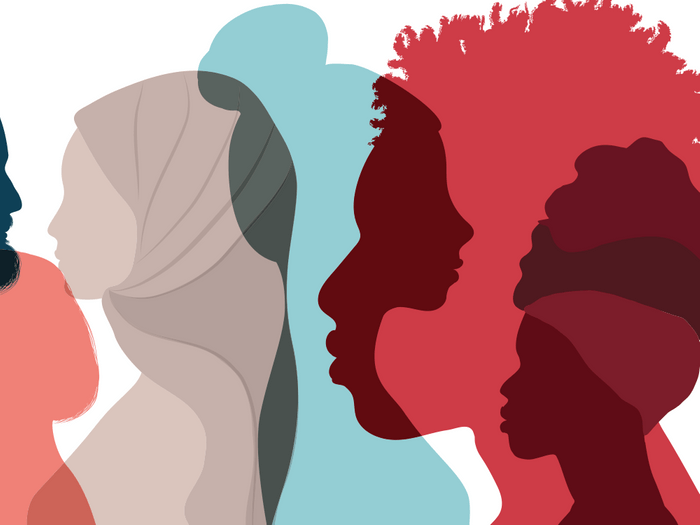
Trans outreach worker Anaïs Montenegro
For helping trans migrants find friends, shelter and gender-affirming health care
As an outreach worker at Action Santé Travesti(e)s et Transexuel(le)s du Québec (ASTT(e)Q) in Montreal, Anaïs Montenegro juggles many tasks. ASTT(e)Q aims to improve access to health care and social services for trans people across Quebec, hooking participants up with everything from housing to hormones, and providing safe spaces for socializing.All of ASTT(e)Q’s staff are also trans, something participants appreciate, says Montenegro. People feel more comfortable, she says, when they’re working with someone who can understand what they’re going through. Each year, more than 50 of the people who access ASTT(e)Q services are trans migrants who are new to Quebec, sometimes from countries where being LGBTQS+ is not supported and trans rights are non-existent. Montenegro, who immigrated to Canada from Costa Rica… years ago, helps them find housing and connects them with professionals like doctors, immigration specialists, lawyers and psychologists. If migrants end up involved in the legal system (whether it’s an immigration hearing or charges stemming from the criminalization of sex work), Montenegro often accompanies them to offer emotional support.
“That’s the part of my job I’m most proud of,” she says. “They’ll say, ‘My support worker is here, I’m being taken care of.’ ” This solidarity is crucial when trans rights are under attack, and anti-trans voices in Canada have grown louder. Both Saskatchewan and New Brunswick have introduced policies requiring teachers to obtain parental permission before using a child’s preferred name and pronouns— meaning that trans kids could be forcibly outed to their parents. Despite the current political climate, Montenegro says that her work can also be really fun. She plans dinners and social outings, like trips to Montreal’s Botanical Garden or to nearby farms for apple picking. It’s important for newcomers to connect to other trans people, Montenegro says. “It makes us feel strong.” —Ziya Jones
